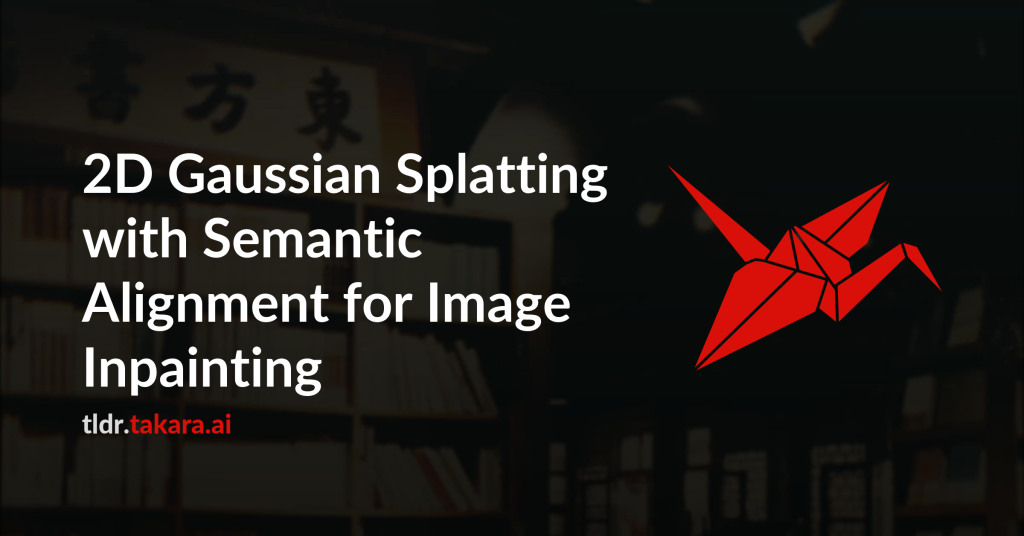Gaussian Splatting (GS), a recent technique for converting discrete points
into continuous spatial representations, has shown promising results in 3D
scene modeling and 2D image super-resolution. In this paper, we explore its
untapped potential for image inpainting, which demands both locally coherent
pixel synthesis and globally consistent semantic restoration. We propose the
first image inpainting framework based on 2D Gaussian Splatting, which encodes
incomplete images into a continuous field of 2D Gaussian splat coefficients and
reconstructs the final image via a differentiable rasterization process. The
continuous rendering paradigm of GS inherently promotes pixel-level coherence
in the inpainted results. To improve efficiency and scalability, we introduce a
patch-wise rasterization strategy that reduces memory overhead and accelerates
inference. For global semantic consistency, we incorporate features from a
pretrained DINO model. We observe that DINO’s global features are naturally
robust to small missing regions and can be effectively adapted to guide
semantic alignment in large-mask scenarios, ensuring that the inpainted content
remains contextually consistent with the surrounding scene. Extensive
experiments on standard benchmarks demonstrate that our method achieves
competitive performance in both quantitative metrics and perceptual quality,
establishing a new direction for applying Gaussian Splatting to 2D image
processing.

